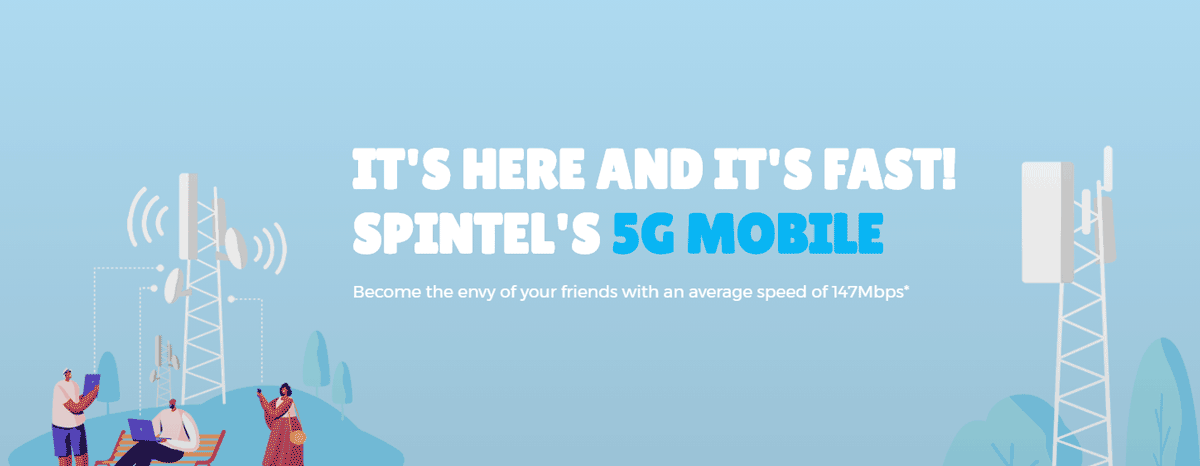Optus mobile 5G now available to MVNOs
Optus has announced that its mobile 5G network is now available to Mobile VIrtual Network Operators (MVNO). This is great news for Australians who prefer smaller telcos, and for competition in the telco market in general as more 5G plansare launched .
So far, Optus is leading the charge of bringing MVNOs on board the 5G market. The technology had been exclusive to the major telcos since its launch in 2019.
Initially, Optus launched 5G with its Expressions of Interest Campaign in January of last year, testing out its fixed home wireless 5G plan. Telstra followed a few months later, and TPG Telecom (Vodafone) joined the race earlier this year.
But the market just got a little tighter with Optus’ mobile 5G invite to MVNOs, and perhaps this latest development might result in the other major telcos opening the door to their MVNOs as well.
Optus 5G strategy has always included MVNOs
Optus made its intentions known late last year when it announced that its strategy includes wholesaling 5G to MVNOs. Few months later, in August, the telco announced that its fixed home wireless 5G network was now available through MVNOs, with SpinTel being the first MVNO to resell that 5G service.
Now, Optus has opened up its entire 5G network to MVNOs (not just the fixed home wireless service), based on its announcement on Monday. And with over 900 5G sites switched on so far, Optus 5G is a great step for consumers who want 5G access through MVNOs.
And, like Optus’ fixed home wireless 5G, SpinTel is also the first to MVNO to offer 5G plans on Optus’ mobile 5G network, and they boast of average 5G speeds of 147Mbps.
SpinTel mobile 5G plans vs Optus mobile 5G plans
With SpinTel being the first MVNO to offer mobile 5G plans to Australians, how do they stack up with telco giant Optus? Here’s a comparison:
| Spintel Mobile 5G Plans | Optus Mobile 5G Plans | |
|---|---|---|
| Type of plan | Month-to-month | Month-to-month |
| Range | 3 plans ranging from $30 to $45 per month (Including $5 discount for first 6 months) | 5 plans ranging from $39 to $119 per month |
| Data inclusion | 10GB to 80GB | 10GB to 500GB |
| National Talk/SMS | Unlimited | Unlimited |
| International | None | Unlimited from $49 (Medium) plan and up |
| Extras | None | Optus Sport and Optus Fitness from Medium plan and up |
Comparing SpinTel and Optus 5G plans shows exactly why MVNOs are needed in the telco market. While they both offer the same exact 5G network and coverage, SpinTel provides 5G access for less.
For instance, SpinTel’s largest plan offers 80GB of 5G data for $45 (first 6 months, and $50 after that), while Optus’ $49 plan includes only 60GB. However, for those who want extras and International inclusions, larger telcos like Optus are the typical preference, as MVNOs hardly offer such inclusions.
Bottom Line – MVNOs an improve the 5G market for consumers
For telcos, competition isn’t really great news – it limits what they can charge for services rendered to customers because companies would have to price competitively in order not to get overtaken by other companies. For consumers, on the other hand, a competitive telco market is always great news. It means more options to choose from as far as plans and companies, as well as cheaper phone plans.
MVNOs bring competition to the telco market. They are smaller companies that resell the major telcos’ networks. This means they avoid the larger overhead costs that massive companies like Telstra and Optus have to worry about. They simply buy those telcos’ networks at wholesale prices and resell to you and retail prices.
MVNOs smaller nature allows them to zero in on more specific plans. They typically have smaller lineups and are more affordable than larger telcos’ offers. If you’re into more straightforward phone plans without flashy extras, then MVNOs are the way to go. If you’re into the extras like entertainment and don’t mind paying a lot for them, then the larger telcos might be your best bet.
As a result, the entry of MVNOs to the 5G market brings competition, which means more options and more affordable plans for consumers. As of today, the major telcos are reluctant to state how much 5G will cost consumers, which is an indication that 5G plans will eventually be more expensive than 4G. With MVNOs bringing more competition into the 5G space, perhaps larger telcos might rethink their positions, and any potential price hike might not be such a hike at all.
